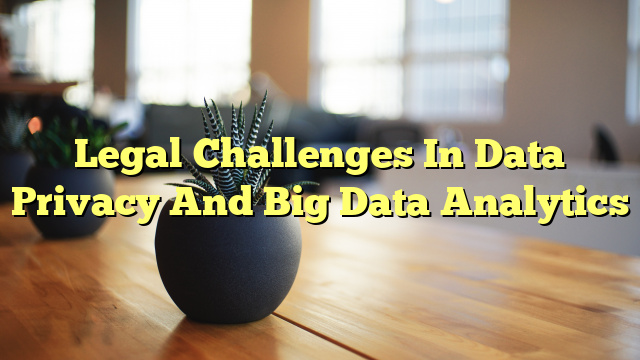Table of Contents
- Introduction
- Challenges of Big Data and Analytics
- The Problem with Big Data and Privacy
- Legal Requirements for Protecting Privacy
- Big Data Analysis and Privacy Violations
- Conclusion
Introduction
Data privacy and big data analytics have become increasingly important topics in the modern world. With the rise of the internet and advances in technology, more and more data is being collected and stored by organizations and governments. As a result, there are growing concerns about how this data is used and how it affects the privacy of individuals. The challenge for organizations and governments is to ensure that data privacy is respected while still being able to make use of the data for the purposes of big data analytics.
Challenges of Big Data and Analytics
Big data analytics is the process of analyzing large amounts of data to uncover trends and patterns. It is used to gain insights that can be used to make better decisions and improve operations. However, this process can be challenging due to the sheer volume of data that needs to be analyzed. Furthermore, the data may be coming from disparate sources or be in different formats, making it difficult to work with. Additionally, the data may also be sensitive or contain personal information, which raises privacy concerns.
The Problem with Big Data and Privacy
When dealing with large amounts of data, privacy is an important concern. Data that contains personal information, such as names, addresses, and social security numbers, is subject to various regulations and laws. Furthermore, even data that does not contain personal information can still be used to infer personal information about an individual. For example, a company may be able to infer an individual’s age, gender, or income based on data about their purchasing habits. As a result, it is important for organizations to take steps to ensure that the data is protected and that individuals’ privacy is respected.
Legal Requirements for Protecting Privacy
There are a number of laws and regulations that govern the use and protection of data. In the United States, the most notable of these is the Health Insurance Portability and Accountability Act (HIPAA), which governs the use and protection of medical information. Additionally, there are other laws and regulations that deal with data privacy, such as the Gramm-Leach-Bliley Act and the Children’s Online Privacy Protection Act. There are also laws in other countries, such as the General Data Protection Regulation in the European Union.
Organizations must ensure that they are in compliance with these laws and regulations when dealing with data privacy and big data analytics. This means taking steps to ensure that the data is secure and that individuals’ privacy is respected. Additionally, organizations must also ensure that they are not violating any laws or regulations when using the data for big data analytics.
Big Data Analysis and Privacy Violations
Big data analysis can also lead to privacy violations if not done properly. This can include collecting and using data without the consent of the individual, using data that is not relevant to the purpose, or using data in ways that the individual did not expect. Additionally, it can include using data to infer personal information without the individual’s knowledge or consent.
Organizations must ensure that they are taking steps to protect individuals’ privacy when using big data analytics. This includes using the data only for the intended purpose, obtaining consent from individuals before using their data, and ensuring that the data is secure. Additionally, organizations must ensure that they are not using the data in ways that violate the laws and regulations that govern data privacy.
Conclusion
Data privacy and big data analytics are important topics in the modern world. Organizations must ensure that they are taking steps to protect individuals’ privacy while still being

